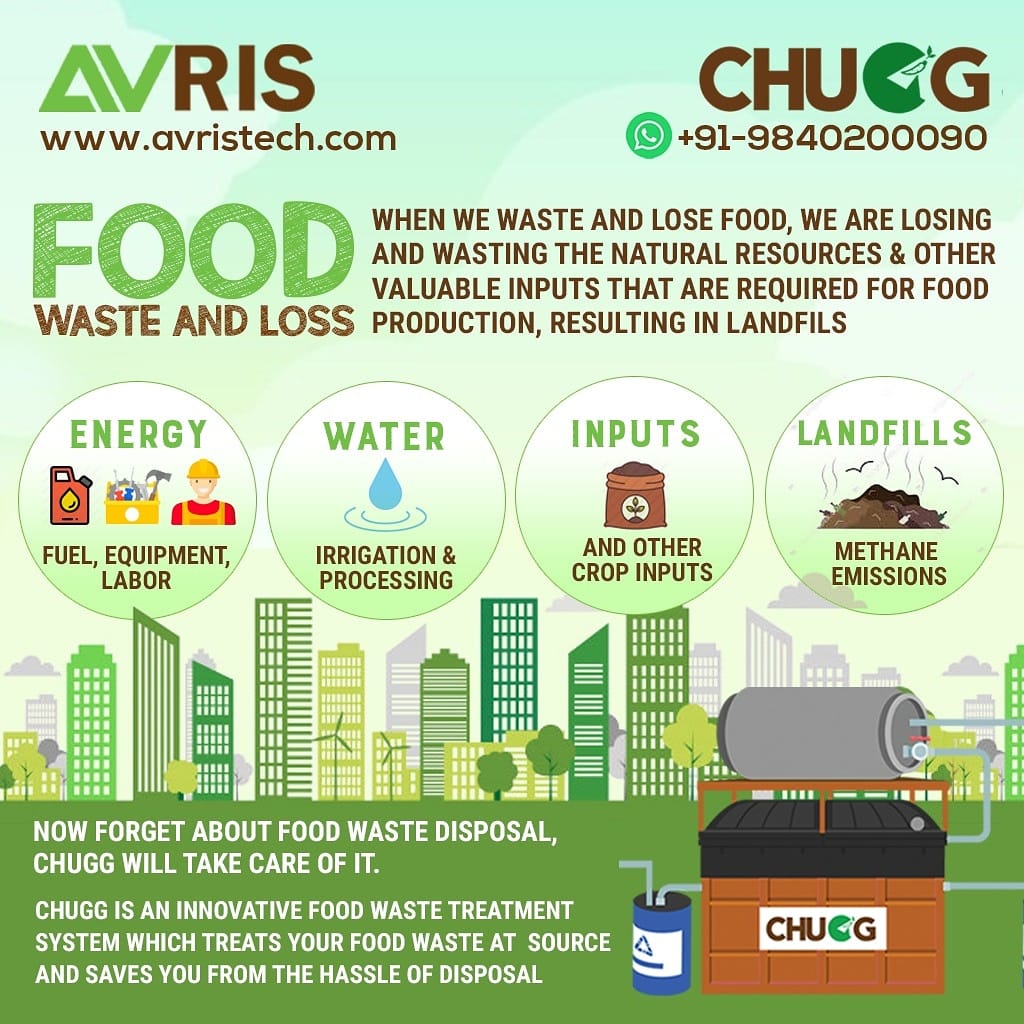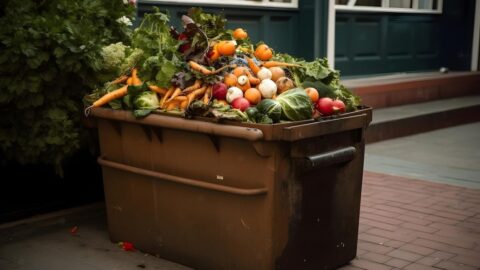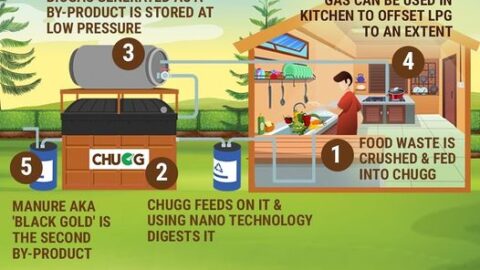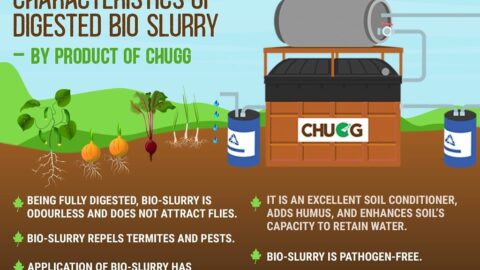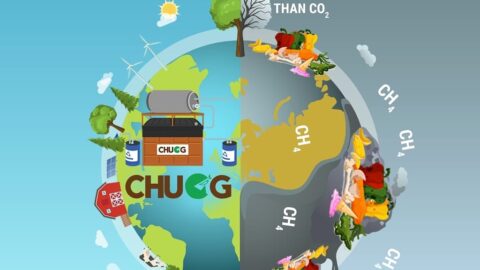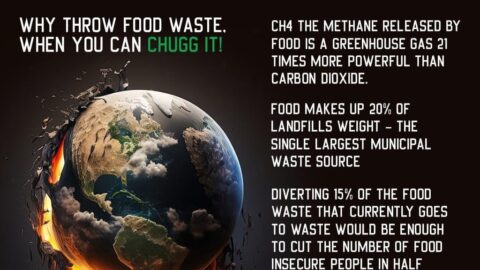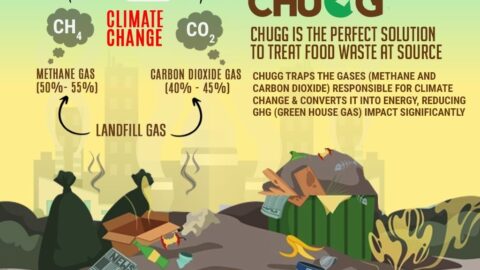In today’s world, where environmental sustainability is a top priority, the food industry is faced with the critical challenge of addressing food waste. Shockingly, the Food and Agriculture Organization of the United Nations (FAO) reports that approximately one-third of all food produced for human consumption goes to waste every year. This startling statistic emphasizes the urgent requirement for cutting-edge solutions to successfully address this challenge. Every step in the food production and consumption cycle is driven by environmental responsibility. Where waste is minimized, resources are optimized, and sustainability is at the core of every decision.
This vision is becoming a reality, thanks to the innovative efforts of CHUGG, a pioneering company that is reshaping the food industry’s approach to environmental sustainability. In this article, we will explore how CHUGG is making a significant impact in the quest for zero food waste and maximum environmental responsibility.
The Need for Sustainable Practices
The issue of food waste has become a pressing concern that not only affects the economy but also poses significant environmental challenges. The food industry has traditionally been associated with significant environmental challenges. From excessive packaging waste to food loss and inefficient supply chains, the sector has been a major contributor to environmental degradation.
Traditional methods of food waste disposal, such as land-filling or incineration, contribute to harmful greenhouse gas emissions and deplete valuable resources. Recognizing the urgent need for a sustainable solution, with increasing awareness and the urgent need for sustainable practices, patented innovative food waste treatment systems like CHUGG have emerged as game-changers, revolutionizing the way food is produced, distributed, and consumed.
The Global Food Waste Crisis
Food waste is a global crisis with severe social, economic, and environmental consequences. It strains valuable resources, wastes tremendous amounts of energy, and exacerbates hunger and poverty. To combat this crisis, it is crucial to embrace innovative approaches like CHUGG that have the potential to make a substantial difference.
The Rise of CHUGG: Revolutionizing the Food Industry
CHUGG creates Healthy and Sustainable Goodness and has quickly gained recognition as an industry leader in driving sustainability within the food sector. The company’s mission is to create a positive impact on the environment while reducing the amount of food waste reaching the landfills and being a reliable source of producing biogas and bio-fertilizer from food waste. By integrating sustainable practices into every aspect of their operations, CHUGG has become a beacon of hope in an industry ripe for change.
CHUGG’s commitment to sustainability goes beyond mere buzzwords. The company has implemented innovative strategies and initiatives that have reshaped the food industry’s environmental responsibility landscape.
CHUGG is a state-of-the-art food waste treatment system that has garnered attention for its ability to process organic waste in an efficient and environmentally friendly manner. Through the utilization of cutting-edge technology, CHUGG converts food waste into valuable resources such as biogas and organic fertilizers, utilizing a process known as anaerobic digestion.
The Working Mechanism of CHUGG
CHUGG operates through a simple yet sophisticated mechanism. Food waste is collected and loaded into the system, where it undergoes anaerobic digestion. In this controlled, oxygen-free environment, specialized microorganisms break down the organic matter, resulting in the production of biogas, a renewable energy source, and digestate, a nutrient-rich fertilizer.
CHUGG’s Zero Food Waste Approach
1 Food Waste Reduction
One of the primary areas of focus for CHUGG is reducing food waste. The staggering amount of food that goes to waste each year is not only a waste of resources but also a significant contributor to greenhouse gas emissions. CHUGG tackles this issue head-on by implementing comprehensive food waste reduction programs throughout their supply chain. By working closely with farmers, suppliers, and retailers, they ensure that surplus food is redirected to those in need, such as local food banks and community organizations. This approach not only minimizes waste but also addresses the pressing issue of food insecurity.
2. Produces valuable renewable energy
The implementation of CHUGG offers numerous benefits to the food industry. Firstly, it significantly reduces food waste by diverting it from landfills. This reduction not only minimizes environmental impact but also helps alleviate strain on waste management infrastructure. Secondly, CHUGG generates biogas, a valuable renewable energy source that can be utilized to power various operations within food processing facilities, reducing reliance on fossil fuels. Additionally, the digestate produced by CHUGG serves as a sustainable alternative to chemical fertilizers, promoting soil health and improving crop productivity.
The Impact of CHUGG’s Initiatives
1 Environmental Benefits
CHUGG’s commitment to zero waste and sustainability has had a profound impact on the environment. By reducing food waste, the company helps conserve precious resources such as water and energy that are used in food production. Additionally, CHUGG’s packaging innovations significantly reduce plastic waste, alleviating the burden on landfills and marine ecosystems. The company’s overall carbon footprint has been significantly reduced, making it a key player in the fight against climate change.
2 Social and Economic Implications
CHUGG’s initiatives extend beyond environmental benefits. By collaborating with local communities and supporting food banks, the company addresses social issues like food insecurity and hunger. Moreover, CHUGG’s commitment to sustainable practices creates new economic opportunities, such as jobs in waste management, packaging development, and supply chain optimization. This multi-faceted approach creates a positive ripple effect, benefiting both society and the economy.
Challenges and Future Outlook
1 Overcoming Resistance to Change
While CHUGG has made significant strides in reshaping the food industry’s environmental responsibility, challenges remain. Resistance to change from established players and consumers who are resistant to adopting new practices can hinder progress. Education and awareness campaigns play a crucial role in overcoming these challenges, highlighting the long-term benefits of sustainable practices and fostering a culture of responsibility within the industry.
2 Scaling Up and Collaboration
As CHUGG continues to expand its operations, scaling up sustainable practices becomes vital. Collaborations with other industry stakeholders, including farmers, suppliers, retailers, and consumers, are essential for creating a comprehensive and interconnected sustainable food ecosystem. By working together, the industry can accelerate the adoption of sustainable practices and maximize its impact on environmental responsibility.
3 Challenges and Solutions in Implementing CHUGG
While the benefits of CHUGG are evident, its implementation may encounter certain challenges. These challenges include initial setup costs, logistical considerations, and adherence to regulatory requirements. However, Avris Tech provides comprehensive support and expertise to overcome these obstacles, ensuring a smooth integration of CHUGG into existing food waste management practices.
4 Future Prospects of CHUGG
As global awareness regarding environmental responsibility continues to grow, the demand for sustainable waste management systems like CHUGG is expected to rise. With ongoing technological advancements and increasing regulatory support, CHUGG has a promising future, capable of reshaping the food industry’s approach to waste management and sustainability.
Conclusion
In conclusion, the food industry has a vital role to play in addressing the global challenge of food waste. CHUGG, developed by Avris Tech, offers a groundbreaking solution that minimizes waste and maximizes positive outcomes. By implementing CHUGG, food industry establishments can significantly reduce their environmental footprint while simultaneously reaping economic benefits. Embracing CHUGG not only demonstrates a commitment to environmental responsibility but also contributes to the long-term sustainability and profitability of food industry operations.

